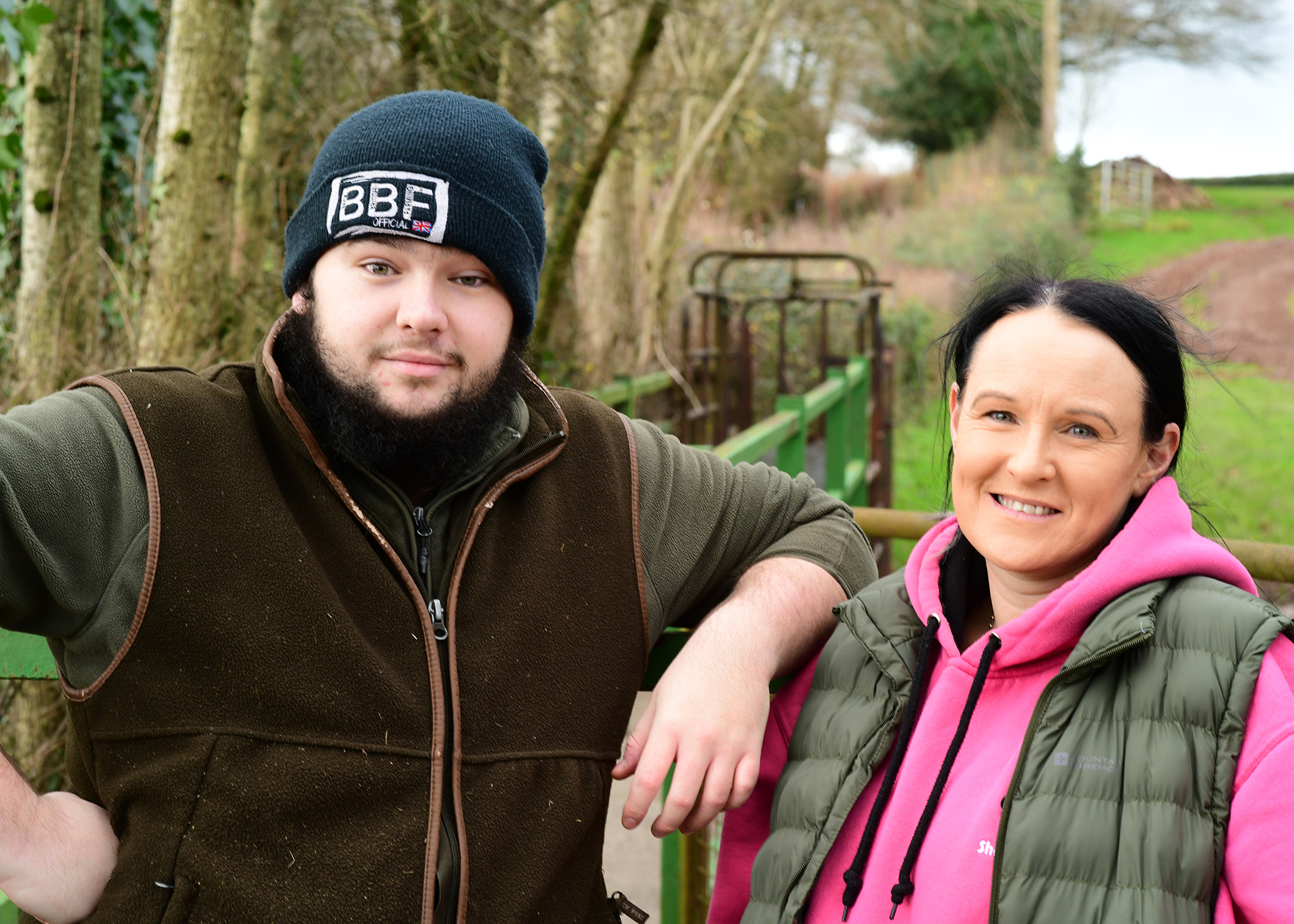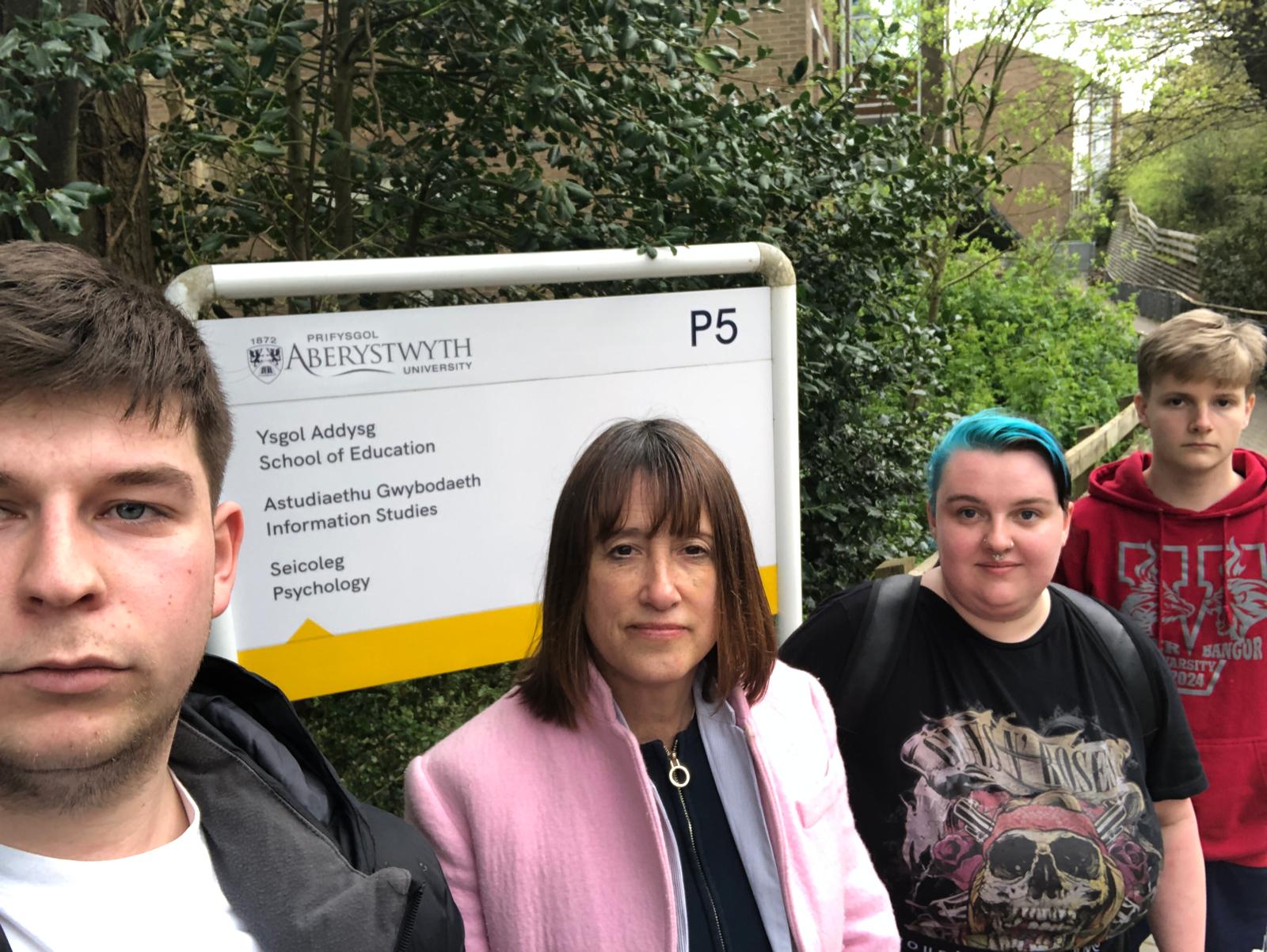News
Welsh Government consults on school year changes

THE WELSH GOVERNMENT opened a consultation about changing the school calendar on Tuesday, November 21.
The Welsh Government wants to spread breaks more evenly throughout the school year, including a 2-week half-term autumn break.
The current school calendar means that the autumn term is longer than others. Research suggests this term is tiring and challenging for learners and staff, as more teaching is squeezed into this term than any other.
CHANGES COULD BENEFIT DISADVANTAGED
The number of days of school holidays and teaching days will not change.
Some pupils, especially those from financially disadvantaged backgrounds and those with Additional Learning Needs (ALN), find it difficult to return to learning after long summer breaks.
Because the summer break is long, the autumn term has to be devoted to going over things rather than advancing learning. Teachers also report more behavioural and well-being issues after the summer break.
Under the new proposal, a week would be taken from the start of the summer break and added to the October break so that staff and learners get more time to rest during the long autumn term.
Teachers and pupils will still get 13 weeks of break, but some will be moved so they happen when they provide the most benefit.
These changes would be made from September 2025, meaning schools would get a two-week break in October 2025 and a five-week summer break in 2026.
TEACHERS AND TORIES EXPRESS DOUBTS
Teachers oppose changes to an academic calendar based on the pre-industrial revolution teaching pattern of Oxford University.
Emma Forrest, NEU Assistant General Secretary Regions, Wales, and Legal Strategy, said: “NEU is disappointed that the Welsh Government has chosen this time to propose changes to the pattern of the school year.
“It’s a really difficult time in education. The education workforce has seen significant periods of change to implement the new curriculum and significant additional learning needs and Reform.
“The Welsh Government must provide a clear rationale for Reform.
“Any changes need to be evidence-based and ensure the workforce’s well-being.
“Any changes must also show how they would benefit children and young people’s learning.
“NEU Cymru will be consulting with our members over the proposals.”
Welsh Conservative Shadow Education Minister Laura Anne Jones MS said: “There are many issues with Labour’s plans to reform the school year, with the biggest impact potentially being felt by pupils, teachers and parents. As well as an already struggling tourism sector.
“The Labour Government must learn the lesson from their disastrous 20mph consultation and listen to parents and teachers before they move forward with any plans.
“Although we support reforming the school day, Reform to both the day and the holiday cannot take place without compelling hard evidence on why it is needed and the positive difference it would make to pupils and teachers. This must not be based on perception or opinion.”
FURTHER CHANGES PLANNED
The consultation will also explore additional changes that could be taken forward in the future, but not from 2025.
These changes include the option of moving a second week from the summer break and adding it to the Whitsun break. This would help make terms similar lengths and the summer term more consistent, making it easier for pupils to learn and teachers to plan.
In this case, GCSE and A Level results days could happen in the same week. This will be explored over the coming years in the same timeframe as the rollout of our Made-for-Wales qualifications.
The proposal would also make the spring term easier to plan for. The two-week break in the spring always coincides with Easter, which moves around.
Keeping the spring break at a constant midpoint and separating it from Easter would make the term more consistent. Easter Monday and Good Friday public holidays would still apply. Teaching time for these days would be made up elsewhere in the year.
LONG SUMMER BREAK BAD FOR FAMILIES
Looking at different school term dates is part of the Co-Operation Agreement with Plaid Cymru.
Jeremy Miles, the Minister for Education and the Welsh Language, said: “The long summer break can be a real strain. Families struggle to find childcare over the six weeks, and others struggle with the additional costs long summers bring. We also know our most disadvantaged learners suffer the most ‘learning loss’ from a long summer.
“There are plenty of examples of local authorities across the UK changing their school calendar to suit local needs.
“We want to make sure education works best for pupils, teachers, and families. We’re looking for people’s views on these changes and what it would mean for them.”
Designated Member Sian Gwenllian said: “The current school calendar was designed long ago, under very different circumstances. We suggest changes that could work better for everyone, but most importantly for pupils of all ages.”
PARENTS WELCOME CONSULTATION
Jason Elsom, the Chief Executive of PTA organisation Parentkind, responded: “Our recent poll of 6,800 parents in Wales revealed that most parents support a move to spread school holidays more evenly across the year, with 72% of lower-income families in favour.
“It is fair to say that the current concentration of school holidays in the summer months results in inflated childcare and family holiday costs, compounding the challenges faced during the cost-of-living crisis.
“Most importantly, this impacts the life experiences and chances of the most vulnerable of children.
“We are pleased to see this consultation by the Welsh Government.”
Farming
Animal health and welfare workshops help family farm shape future business

AN eagerness to learn new skills and knowledge is helping mother and son Dianna and Iestyn Spary to continually improve their livestock farming enterprise and build a financially sustainable business fit for the future.
Technical expertise and good business sense are not qualities the Sparys lack since embarking on an impressive number of Farming Connect workshops, covering a range of animal health and welfare topics.
“It’s been an amazing opportunity, we have learned so much that we can apply within the day to day running of our farm and herd, and we can draw on that knowledge as we look at developing new enterprises and diversifications,’’ says Dianna.
She is the fifth generation of her family to farm at Goytre Farm at New Church West, Chepstow, Iestyn the sixth.
Together they farm 110 hectares, running a Hereford-cross beef suckler herd and also rearing beef cattle purchased as baby calves, including more recently British Blues, taking these through to slaughter.
Although they have been immersed in agriculture all their lives, they recognise that it is an industry that is constantly changing as new research and ideas are rolled out and applied.
This is where the Farming Connect workshops have been so incredibly valuable, says Dianna.
“You are never too old to learn, things are changing all the time. If we hadn’t got involved in attending the workshops, we would never have known about some of those new ways of doing things.’’
From learning how to maximise suckler cow productivity and protecting youngstock health to understanding diseases such as Johne’s and bovine TB, the animal health and welfare training workshops have been “enormously valuable’’, she adds.
The pair have tapped into Farming Connect accredited training courses covering areas such as calf management, health and housing, body condition scoring and safe use of veterinary medicines.
“You name it we have done it,’’ says Dianna.
They were announced the winners of the 2023 Farming Connect Animal Health and Welfare Award at the Lantra Cymru Awards in January.
The knowledge gained through Farming Connect workshops and training has helped inform changes in the business.
“We now monitor cattle weights more closely and have introduced different ways of feeding,’’ Dianna explains.
“We have also been revamping all the cattle sheds and have a couple of new ones that will be going up.
“We’ve also invested in calf jackets and if there are any drops in weights, we are more responsive with feed intakes, little things like that.’’
Iestyn has also benefited from a number of sheep-related topics offered through the animal health workshops.
Through the Farming Connect Advisory Service, they have received specialist veterinary advice on their Herd Health Plan with a focus on incoming stock and biosecurity. They have also had guidance on soil health through the soil clinic.
The Sparys largely use traditional farming methods at Goytre Farm where they have several hay meadows.
All feed is produced on-farm. “By doing everything in-house we know exactly what we are feeding and that’s important to us,’’ says Dianna.
That distinctiveness, which sets them apart from some of the more mainstream farming systems, has given them the confidence to consider establishing a diversification into meat box sales, what Dianna describes as a ‘farm to fork’ approach.
Working with a local butcher who has an abattoir licence, they hope to do everything on-site, from slaughter through to hanging the carcass for 28 days, and then selling cuts direct to the consumer.
“We have also spoken to a chef who is going to produce some recipe cards for us to include in the boxes along with a bit of history of where the meat has come from,’’ says Dianna.
Another future project could be converting stone barns in the farmyard to holiday accommodation.
To help focus their minds on their plans, the Sparys will get guidance at a Farming Connect diversification surgery; they have also signed up for a ‘planning a diversification’ training course and will attend a ‘Dos and Don’ts of Diversification’ event in the coming weeks.
For Iestyn, another form of diversification, into agricultural contracting, has provided a secondary income stream.
His customer base is largely farms with smaller acreages with crops that require harvesting or spraying.
Farming Connect has helped with this process too as Iestyn has gained his Level 2 Award in the Safe Use of Pesticides (PA1) and Safe Application of Pesticides Using Vehicle mounted Boom Sprayer Equipment (PA2).
He also offers field maintenance and fencing and works on a neighbouring farm during the lambing season.
This is where Farming Connect has again helped; through the animal health workshops, he has covered modules advising on the prevention of lambing losses and lameness, improving lamb performance post-weaning and parasite controls.
Dianna says the opportunities available through Farming Connect have really helped to drive the family farming business forward.
“We have a good relationship with our local Farming Connect development officer Lisa Powell, she has been brilliant in giving us advice on which courses and workshops are right for us and signing us up for those,’’ she says.
All your achievements, training and knowledge transfer activities are saved within your personal, online Storfa Sgiliau account, the unique, online professional development tool, available for you to view and download at any time from your BOSS (Business Online Support Service) account.
Education
Lib Dem leader meets student union after scrapping of teacher training

Last week, the Leader of the Welsh Liberal Democrats Jane Dodds visited Aberystwyth University to meet students following the announcement that the University will be scrapping their Postgraduate Certificate in Education (PGCE) program.
The announcement comes after the publication of an Estyn inspection report last year, which found that the institution had “been too slow” when it came to prioritising student support.
The Welsh Liberal Democrats have now called for the University to produce and implement an action plan that will enable the reintroduction of this course at the earliest opportunity, as well as for the Uni to rectify any similar shortcomings in other training programs.
Commenting, the Leader of the Welsh Liberal Democrats Jane Dodds MS said:
“Aberystwyth university has long been seen as a cornerstone of education here in Wales, and its role in shaping the future of Welsh-medium education is pivotal.
However, the decision by the Education Workforce Council to withdraw accreditation for their teacher training program now puts this at risk.
The report published by Estyn rightfully identified several flaws in the Uni’s approach to supporting student teachers, along with requiring the University to make significant improvement.
The decision of the EWC suggest that these improvements have not been made.
We are now calling on the University to get their act together, fix the shortcomings in this program and begin plans to reintroduce the course as soon as possible.
Commenting, a spokesperson for the Welsh Young Liberals said: “There was an overwhelming lack of support, especially for Disabled Students, which has been consistent since 2020.
Previous lecturers were always late, and assignments were marked late and inconsistently.
As a joint honours student my timetable is very erratic, and this has an adverse effect on my wellbeing.
This does not however, mean that the course should be cut, Aberystwyth university should be looking to improve the course and help deliver the next generation of teachers.”
Commenting, the Welsh Liberal Democrat PPC for Ceredigion Mark Williams said: “The reputation of Aberystwyth University as a well-respected centre of education is rightfully a source of pride for many residents here in Ceredigion.
This is why it is so dis-heartening to hear that the Uni have failed to take the recommendations in the 2023 Estyn report seriously, leading them into the embarrassing position of losing their accreditation which risks delivering a severe blow to the future of Welsh-medium education.
The lack of foresight from the Uni in this regard is deeply worrying and I hope that, for the sake of both the students and the wider community, they take all the steps needed to restart the course at the earliest opportunity.”
Crime
Manslaughter charge following death in Carmarthenshire

DYFED-POWYS POLICE have confirmed Jason Thomas, 39, from Llanelli, has been charged with manslaughter following an incident on Saturday, March 25.
Police were called to a property in Robinson St, Llanelli to concerns for the welfare of a man.
Liam Rhys Morgan-Whittle, 22, was taken to hospital where he sadly passed away.
Jason Thomas was quickly arrested and later released on conditional bail while the police investigation continued.
He will appear at Llanelli Magistrates Court on Thursday, May 30, it has been confirmed.

-

 News5 days ago
News5 days agoPolice and air ambulances at ‘serious incident’ at West Wales school
-

 Business3 days ago
Business3 days agoLargest Welsh port appoints communications and marketing director
-

 Crime5 days ago
Crime5 days agoPembrokeshire pensioner accused of 17 sexual offences against children
-

 Crime4 days ago
Crime4 days agoAll three school stabbing victims discharged from hospital, police confirm
-

 Community6 days ago
Community6 days agoCounty Hall to offer space for community banking
-

 Sport7 days ago
Sport7 days agoSwifts eyes on double.
-

 News1 day ago
News1 day ago‘Honest’ caravan site owner ran site ‘under the radar’ for 20 years
-

 Community3 days ago
Community3 days agoSuspected explosive device found on west Wales beach

























